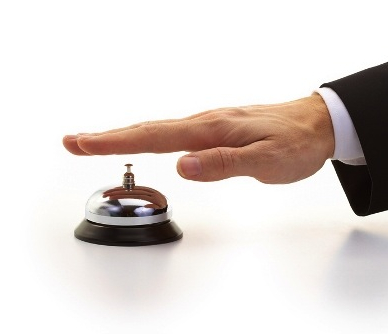My life in ATC began with 4 years Air Force then another 30 years with the Federal Aviation Admin. working tower & radar at some big international airports. I fought in the 1981 war with PATCO, survived the strike and kept a job that was just too exhilarating to walk away from. While there was nothing better than working airplanes, I did move on through several air traffic supervisory and management positions. It was a long, crazy career but I wouldn't trade a moment of it for love or lucre!
Thanks for your questions. They’re good ones and they bring back a few memories!
In my world, which was a terminal facility where controllers were required to work in both the tower and radar room (a configuration that the FAA is moving away from), there was one Supervisor in the tower cab. Down in the radar room there was at least one Supervisor walking the floor and sometimes two if the demand required it. The day and evening shifts also had a second line Supervisor known as an Area Manager who manned the desk and was responsible for the entire operation. Although job titles have changed, you’ll still find a first line supervisor in most towers, plus a number of them in the radar room. That number will vary depending on how many control positions there are in the room.
Controllers didn’t disagree with each other very often but when they did; the exchange could become pretty intense! Sometimes these differences would be worked out later on in the break room or somewhere else after the shift ended.
In the thick of battle, Supervisors would often ‘ask’ controllers to do certain things they felt would facilitate the movement of traffic. Being able to circulate among all the control positions, a good Supervisor was able to maintain an overall picture of what was going on and act on that knowledge. Individual controllers needed to focus on their own area of responsibility and didn’t have the broad perspective Supervisors had. We were free to disagree with a Supervisor’s direction but compliance was mandatory; unless we were willing to face a charge of insubordination. That didn’t happen very often.
At one time in the late 1970s, there was an Article in the Professional Air Traffic Controller Organization (PATCO) Contract with FAA that attempted to address professional disagreements between controllers and Supervisors. The Article absolved the controller of responsibility for any negative outcomes that might occur from following the Supervisor’s order. It worked like this. If a Supervisor ordered you to do something either you or the union believed was unsafe; you would inform him or her that you were invoking that Article. Then you’d comply with the order. I never actually saw anything go wrong in these situations. In those days of constant friction between PATCO and FAA, I think that Article was simply a way for controllers to poke Management in the eye. It made some some people feel better but had no tangible effect on things.
Thanks again,
Factor
Thanks for writing, Dave. Although many air traffic controllers work for private companies, most are employed by the Federal Government, in either the Department of Defense (DOD) or the Federal Aviation Administration (FAA). I spent most of my ATC time in the FAA.
I don’t know much about how difficult it is to oust an employee from other Government agencies but to throw a controller out of the FAA is very, very difficult. In fact, you’d have better luck trying to throw a bowling ball into an open window on a speeding train. A “single high-profile mistake” should be sufficient justification if the employee was proven to have been grossly negligent or was under the influence of drugs or alcohol. This would be an extraordinary situation though. In my experience, most attempts to remove an employee from his/her current position were based on far less dramatic circumstances.
As is the case with certain other professions; not everyone is cut out for ATC. The hope is to identify those individuals during the hiring process. If pre-screening fails, on-the-job training usually uncovers those who are in - way over their heads. Unfortunately, removing such individuals before they make that big mistake can be a protracted and ambiguous process. Documentation is key and relies heavily on the diligence of training instructors and supervisory personnel to ensure that substandard performance becomes part of the trainee’s official record. In other words; put it in writing!
Demands of the job sometimes keep on-the-job training instructors and supervisors too busy to maintain comprehensive performance documentation. This can have unfortunate consequences. In my experience, most individuals who were deemed training failures appealed management’s decision. Unless there was sufficient documentation to support that decision, management would lose. Being able to remain in a job that they’re not really capable of handling means the employee loses too. They just might not realize the fact until it’s too late.
Cheers,
Factor
I had to think a while about that one Peter! You may be referring to traits like my graying hairs (there’s a story behind each one) and my nervous tic or skills such as the ability to drive a stick-shift VW Beetle home after a midnight shift while drinking a quart of beer held between my legs. I never spilled a drop and, by the time I got home, I’d feel mellow enough to fall right to sleep. Being able to get around eight hours of sleep during the daytime was an essential ATC skill if your job was to stay up most of the night! But seriously...
I believe the real answer to your question is that most controllers already had many of the necessary traits and skills needed before they entered the ATC profession. For example; the ability to work under extreme pressure cannot be learned on the job. There is no time to teach someone how to be more analytical, cautious, focused, etcetera when they are struggling to learn the unique skills of ATC work.
As to using one’s acquired ATC skills outside of work? Unlike doctors, plumbers, programmers and such, who can still practice their unique skills after ‘clocking out’ for the day , a controller’s ability to handle air traffic is of absolutely no use off the job. You’ll never find us in the Yellow Pages. What I did take away with me after work was the often annoying sense of urgency and impatience I acquired over years of working airplanes. Not generally useful, marketable or necessarily a good thing. Still, ATC was the only job for me. Although I tried my hand at a few other things before becoming a controller, I could never have made a career of them. I think we’re all cut out to be something – artist, air traffic controller, worrdsmith or whatever. If we’re lucky, we discover our true niche in life before it’s too late. I was lucky!
Thanks for writing!
Factor
Thanks for your question and I really appreciate the compliment!
Although I cannot tell you what the gender ratio is these days; I can tell you there were no women in the Air Force towers I worked at during the Vietnam era. There were two female controllers and about 80 male controllers at the first FAA facility I worked in. The number of women gradually increased but not dramatically. By the time I transferred out (about nine years later), there were six to eight women onboard. One was fired during the 1981 strike. Damned shame too. She was an awesome controller.
The strike actually brought a significant influx of women into our workforce. When I arrived at my next facility in 1983, about 10% of controllers were women. That number grew significantly through the years and when I left there in the mid-nineties, both the Facility Manager and Assistant Manager were women.
I’m sure that, even today, the majority of controllers are male. I can only guess that’s because more women are not applying for the job. It is a tough, intimidating, male dominated and testosterone fueled profession but I can say the female controllers I worked with were among the best.
On my blog (the link is on my profile above)You can read about two of the women I worked with. Look for an entry I made on 01/12/12 titled "On Politics, Passing Acquaintances And Change." Skip down about eight paragraphs if you like and look for the part where I talk about Bonnie and Clare.
Thanks again!
Factor
Starbucks Barista
 Why does Starbucks attract so many homeless people?
Why does Starbucks attract so many homeless people?
MBA Student
 Is business school a party compared to law or med school?
Is business school a party compared to law or med school?
Hotel Front Desk Agent
 Have you ever had a suicide occur in one of your rooms?
Have you ever had a suicide occur in one of your rooms?
How much we got paid depended on who you asked. It’s probably the same story today. Some will say “Not nearly enough” and others will say “Too much!” I was always happy with my salary but never complained when I got a raise! Controller pay rates have changed through the years but their earning potential is still among the highest for Civil Service workers.
Salaries vary depending on where a controller works. Those who work at low traffic density airports don’t make nearly as much as those who work in very busy facilities like Atlanta, Dallas or Washington. Starting out at the GS-7 grade, the annual base pay is about $33,979.00. Controllers who end up in one the busiest facilities can work their way up to the GS-14 level; making as much as $110,104.00 in base pay. The highest supervisor grade (GS-15) can make $129.517.00. To those base salaries, add on extra money controllers make for working nights, Sundays, holidays and other premium pay situations that bump those annual totals higher. Keep in mind, I am referring to Federal ATC positions. There are a number of private ATC companies supplying controllers to facilities that don’t meet the criteria for FAA controllers.
To your second question – Yes, everyone in the control room is or once was a controller. First line management(supervisors) work directly with controllers and are required to stay proficient on the control positions. Falling into the “was” category would be the second line management folks who are responsible for the entire shift but are no longer required to control traffic. A desk job.
Thanks for asking!
Factor
You’ve asked an easy question B.T. but the answer makes me very uneasy! When people work within a system for years, decades and careers, they accept the technology in use and rarely consider its vulnerabilities. That’s good in a way because understanding just how fragile something is could be distracting or, at worst, make you brood over it. If you do a lot of flying; I hope my answer doesn’t have those effects on you.
The FAA does not encrypt voice communications between pilots and controllers. They both use “standard radio frequencies” in the very high frequency (VHF) range for most ATC functions. The frequencies used are widely published and available to anyone; as is the radio equipment required to transmit and receive on them. This lead to an unexpected situation in 1981, after the Professional Air Traffic Controllers Organization (PATCO) went on strike against the FAA. Things didn’t go well for the union and, as the strike dragged on, they grew increasingly determined to convince the public that non-striking controllers were dangerously incompetent. Plans were made and here’s what happened next.
Reports started coming in of ‘phantom controller’ radio transmissions to pilots during critical phases of flight. For example; an airliner about to land might be suddenly waved off or a plane might be cleared for takeoff just as another was about to land. Anything to create confusion. These incidents were perpetrated by striking controllers, using their own radios tuned to our control frequencies. They’d sit, somewhere near the airport where they could watch and listen. Then, at the right moment, they’d transmit bogus instructions. As former controllers, they knew exactly what to say and when to say it. Of course the pilots initially thought it was us! Fortunately, this didn’t go on for long after the FBI got involved.
Thanks for writing!
Factor
Interesting that the recent conversation turned to drug use as it relates to controllers. It gives me the opportunity to highlight related safety measures taken by those responsible for our air traffic control system. Although I can’t say there isn’t abuse of drugs and alcohol in the profession, those instances are rare. In my entire career I saw just one controller fired for alcohol use and one for drugs. I should add that controllers don’t have to completely abstain from alcohol use. That would never do! However, Federal regulations prohibit both controllers and pilots from consuming alcoholic beverages within eight (8) hours of going on duty. We always made up for that after work – but rarely for eight hours!
Adderall is a Schedule II controlled substance. Unauthorized use of any such drugs by controllers will get them fired quicker than you can say “DEA.” If use of a Schedule II drug is prescribed by a physician (it happens), the controller will be removed from active ATC and placed on sick leave or possibly assigned administrative duties until it is determined they no longer need the drug.
Since controllers directly affect public safety, job applicants can expect to be tested for drugs during the hiring process. Controllers on the job are also subjected to random drug and alcohol testing for the same reason. The testing personnel arrive, unannounced, at an ATC facility and will not leave until testing is completed. Testing positive for either drrugs or alcohol will buy you a bunch of trouble - but not nearly as much as being involved in an accident or serious incident while on duty. Controllers involved in an aircraft accident will be tested as soon as possible. As you might imagine; any controller found to be under the influence will see their troubles multiply exponentially.
Thanks for a great question!
Factor
-OR-
 Login with Facebook
Login with Facebook (max 20 characters - letters, numbers, and underscores only. Note that your username is private, and you have the option to choose an alias when asking questions or hosting a Q&A.)
(A valid e-mail address is required. Your e-mail will not be shared with anyone.)
(min 5 characters)
By checking this box, you acknowledge that you have read and agree to Jobstr.com’s Terms and Privacy Policy.
-OR-
 Register with Facebook
Register with Facebook(Don't worry: you'll be able to choose an alias when asking questions or hosting a Q&A.)